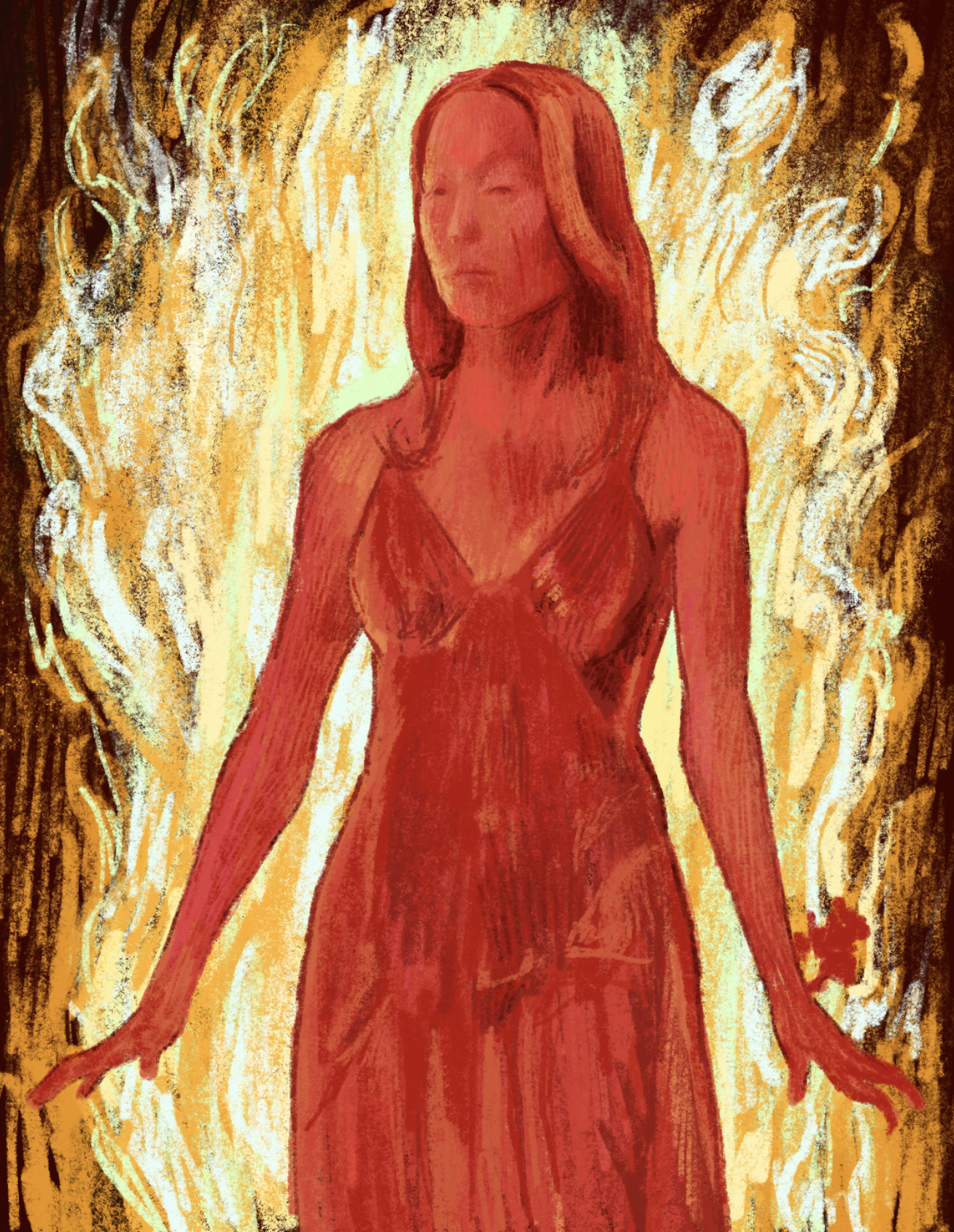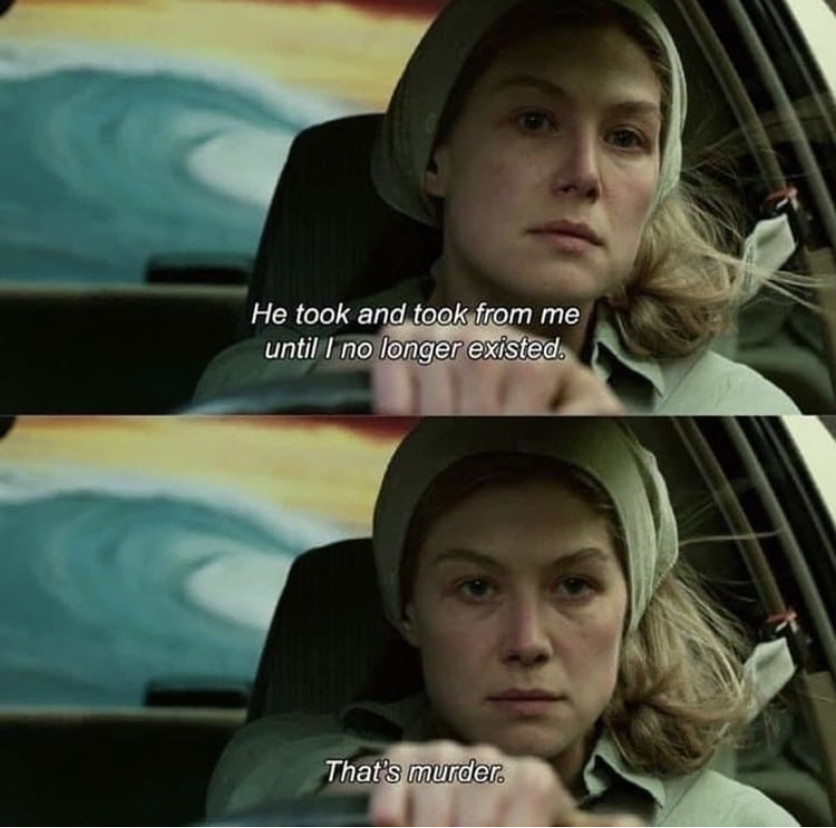Bad Girl Club
Illustration by Sydney Hanson
“Cool girls never get angry; they only smile in a chagrined loving manner and let their man do whatever they want. Go ahead, shit on me, I don’t mind, I’m the Cool Girl.” (Gone Girl, 2014).
The Cool Girl Monologue has always been stuck in my head since I first watched Gone Girl in high school. It resurfaced a specific feeling I’d never been able to articulate; what so many conversations between friends had attempted to put into words, had finally been spoken out loud. The expectation to be the ‘cool girl’ is one that most women can relate to, the feeling of the male gaze heavy on your shoulders, even sometimes in the back of your mind when you’re alone. Be the ‘chill’ girl, never overdramatic, never hysterical, always dodging the ‘Crazy’ label, even in situations that make you want to scream and tug out your hair from being misunderstood.
Emotional women are seen as unattractive by traditional standards. Rage in women is seen as unpalatable and big displays of emotion, crazy or inconsolable, historically pathologized as hysteria or madness. While conversations surrounding gender roles and the breaking of stereotypes grow stronger every day, the urge to tone down our emotions and constantly rationalize our behaviour is one which continues to weigh on the modern woman.
I’ve seen it online and in public, on TV and film, in the workplace and in private. I’ve seen it through an outsider's eyes, watching friends second-guess their feelings and mediating their reactions, fighting the urge to over-explain their emotions. I’ve felt it inwardly, over-calculating responses and tone of voice, lying awake hours later, still questioning my actions. I’ve been told to calm down, called a bitch, ignored, and made to feel delusional. Essentially, I’ve felt guilty for having feelings. It’s difficult to break through barriers that have been internalized since childhood, through life experience, and the media; even if we know the inequitable histories behind them. It’s confusing when you know you’re being unfair to yourself but don’t know how to undo long-inherited and ingrained cultural expectations. Withholding your emotions is exhausting, and demands a release that feels forbidden.
Female rage in film provides the cathartic and validating experience of seeing big emotions portrayed on screen. These characters free the ugly emotions that women tend to keep suppressed. In the ultimate revenge fantasy, Gone Girl’s (2014) Amy Dunne makes herself go missing and frames her ungrateful, cheating husband for her murder. Pearl (2022) shows the titular character passionately screaming “I’M A STAR” after being driven to hysteria by her claustrophobic circumstances. Carrie (1976) shows a high school girl turned supernatural killer after facing constant bullying and cruel humiliation at prom. Jennifer from Jennifer’s Body (2009) becomes possessed and violently targets men, stating the iconic like “no, I’m killing boys”, when Needy accuses her of killing people. I Tonya (2018) showcases Margot Robbie’s character’s spiral after years of trauma at the hands of both her family and the media.
Yes, these characters are often irrational and violent, selfish and vindictive. No, going on a murderous rampage isn’t justifiable. But that’s not the point of these characters. They don’t exist to be likeable or to represent what an ideal member of society looks like. They are ruled by their emotions, releasing their rage in a vicious scream or a violent act. They are everything that we can’t be, confined by societal expectations and internalized ideals of being quiet and unassuming. There’s nothing palatable about them. It’s not their actions that female audiences feel such a strong connection to, but their strong emotional release, the urge to scream and cry and react from feeling wronged or misunderstood, which viewers find catharsis in. The reasoning behind these characters’ emotions is often rooted in authentic female experiences. It’s exhausting being the cool girl and satisfying to watch someone go “Gone Girl” on screen.
Women crying in the media have often been depicted as beautiful, even sexy. But real emotions aren’t ethereal displays; they can be unfair, ugly, and loud. The development of complex female characters on screens breaks down the traditional fragile depictions of women. Female rage on screen allows us to see ugliness, unruliness, and everything in between. There is no ideal femininity, There is only a diverse range of female experiences, ranging from nice to cruel, rational to irrational, and reasonable to ridiculous. We don’t want to see the cool girl on screen. We want to see humanity.



